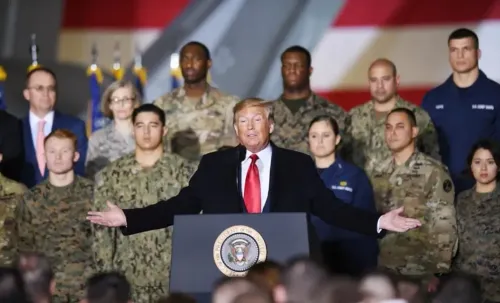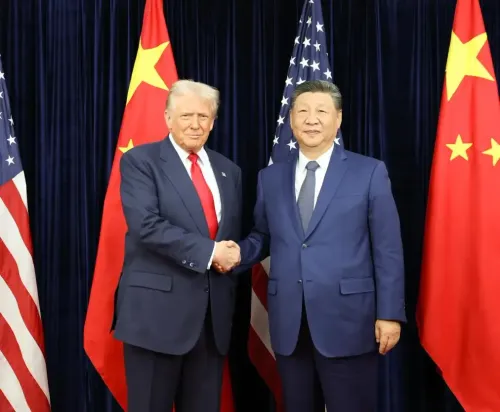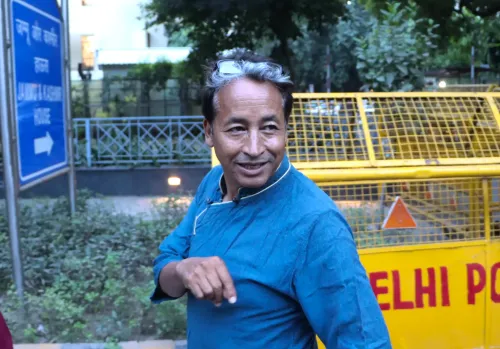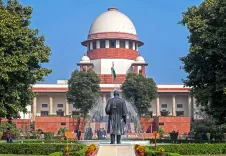Does the SIR Issue Challenge the Foundations of Democracy?
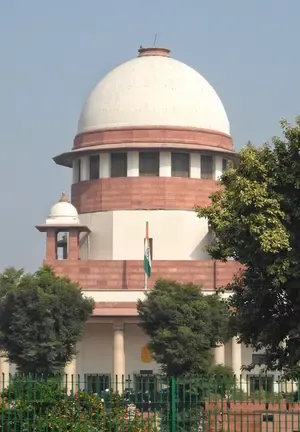
Synopsis
Key Takeaways
- Supreme Court's Role: The court is assessing the legality of the ECI's SIR decision.
- Voter Rights at Stake: The case emphasizes the importance of protecting the right to vote.
- Procedural Concerns: Petitioners raise alarms about the process and timing of the SIR.
- Legal Precedent: The outcome could affect future electoral practices in India.
- National Implications: The case has broader implications for democracy and fair elections nationwide.
New Delhi, July 10 (NationPress) The Supreme Court remarked on Thursday that a series of petitions contesting the Election Commission of India’s (ECI) choice to update electoral rolls in Bihar, which is preparing for elections, addresses a matter that touches the very essence of democracy, specifically the right to vote.
After the petitioners made their oral arguments, a Bench led by Justices Sudhanshu Dhulia and Joymalya Bagchi stated, “There is no doubt that the issue brought forth touches the very essence of democracy -- the right to vote.”
“The petitioners are not only questioning the authority of the Election Commission of India to carry out the Special Intensive Revision (SIR) process but also the methods and timing involved,” they added.
During the proceedings, senior counsel Rakesh Dwivedi, representing the election body, requested the apex court to refrain from intervening in the SIR process at this time.
“Allow the revision process to conclude, and then your lordships may assess the entire situation,” Dwivedi proposed.
In response, the Justice Dhulia-led Bench noted that once the revised electoral rolls are published and Assembly elections are announced, “no court will take action on it.”
Multiple petitions have been submitted to the Supreme Court asserting that if the June 26 directive from the election body to initiate SIR is not overturned, it could arbitrarily and without due process disenfranchise millions of voters from selecting their representatives, thus disrupting free and fair elections, which is part of the Constitution's basic structure.
Senior advocate Gopal Sankaranarayanan, representing the petitioners, argued that the ECI’s directive for a “special” revision of electoral rolls in Bihar is legally unfounded since it does not accept Aadhaar Card and Voter ID Card for verification purposes.
On Monday, the Justice Dhulia-led Bench agreed to prioritize the case after a group of lawyers, including eminent advocates Kapil Sibal, Abhishek Manu Singhvi, Gopal Sankaranarayanan, and Shadan Farasat, requested an urgent hearing.
In her petition, Trinamool Congress MP Mahua Moitra expressed concerns that such a dual revision of the voter list could be replicated in West Bengal and urged the Supreme Court to prevent the Election Commission from issuing similar SIR orders in other states.
Moitra, through her lawyer Neha Rathi, claimed that this is the “first time in the country” that the election body is carrying out such an exercise, where voters already listed and who have previously voted multiple times are being asked to prove their eligibility.
The plea states that the SIR requirement compelling voters to re-validate their eligibility with additional documents is “absurd,” given that most have already voted numerous times in both Assembly and general elections based on their existing qualifications.
In the midst of the controversy, the ECI on Wednesday shared an excerpt from Article 326 of the Constitution of India on X, seemingly to validate the ongoing SIR process in Bihar ahead of the upcoming Assembly elections.
“Elections to the House of the People and to the Legislative Assembly of every State shall be based on adult suffrage; meaning every citizen of India who is at least twenty-one years old on a date determined by the appropriate Legislature and is not disqualified under this Constitution or any law made by the appropriate Legislature shall be entitled to be registered as a voter in any such election,” stated the election body.


